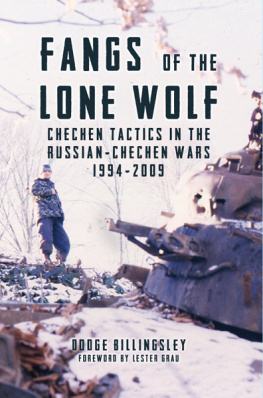LITTLE HAWK
and the LONE WOLF
LITTLE HAWK
and the LONE WOLF

A MEMOIR
RAYMOND C. KAQUATOSH
WISCONSIN HISTORICAL SOCIETY PRESS
Published by the Wisconsin Historical Society Press
Publishers since 1855
2014 by the State Historical Society of Wisconsin
E-book edition 2014
Publication of this book was made possible in part by a grant from the D. C. Everest fellowship fund.
For permission to reuse material from Little Hawk and the Lone Wolf (ISBN 978-087020-650-4; e-book ISBN 978-0-87020-651-1), please access www.copyright.com or contact the Copyright Clearance Center, Inc. (CCC), 222 Rosewood Drive, Danvers, MA 01923, 978-750-8400. CCC is a not-for-profit organization that provides licenses and registration for a variety of users.
wisconsin history .org
Cover design by Steve Biel
Cover illustration by steventhomasart.com
Interior design and typesetting by Mayfly Design
18 17 16 15 14 1 2 3 4 5
The Library of Congress has cataloged the printed edition as follows:
Kaquatosh, Raymond C., 1924
Little Hawk and the Lone Wolf : a memoir / Raymond C. Kaquatosh.
pages cm.
ISBN 978-0-87020-650-4 (hardcover : alk. paper)ISBN 978-0-87020-651-1 (e-book) 1. Kaquatosh, Raymond C., 1924- 2. Menominee IndiansBiography. 3. Menominee IndiansSocial life and customs. 4. Peleliu, Battle of, Palau, 1944Personal narratives. 5. World War, 1939-1945CampaignsPalauPeleliu Island. 6. United States. Marine CorpsBiography. 7. WolvesWisconsin. 8. Human-animal relationships. 9. Menominee Indian Reservation (Wis.)Biography. 10. WisconsinBiography. I. State Historical Society of Wisconsin. II. Title. E99.M44K34 2014
977.4004'973130092dc23
[B]
2014009149
To all members of the Menominee Nation:
May the Great Spirit smile on you often.
FOREWORD
BY DR. S. VERNA FOWLER, PRESIDENT, COLLEGE OF MENOMINEE NATION
Take only memories; leave nothing but footprints.
Chief Seattle
In this personal history, Raymond Kaquatosh illustrates what life was like for a young American Indian boy growing up and maturing in the early 1900s on the Menominee Reservation. As he relates his early education in a boarding school, his teenage escapades, his barroom brawls, and his experiences as a US Marine, he also chronicles his experiences with the attitudes and beliefs of that era that perceived Indian people as stoics, fighters, and naturalists who possess a great sense of humor.
Despite those stereotypes, Ray developed into an independent individual, a living, thinking, feeling human being with a remarkable, even scholarly intellect and notable survival skills.
This memoir is must reading for all of us to aid our understanding of other cultures, particularly young American Indians growing up on reservations because it connects them with their elders. Ray Kaquatosh reminds us all that others have traveled the path before us, and therefore we are not victims of circumstance. We have choices, and others footprints to follow, and because of that our lives are filled with hope and promise.
Birth of Little Hawk
It is July 25,1924, and I am about to be born. No physician is present, but a Second Mother, or midwife, is summoned to participate. My parents are John and Margaret. John is half Chippewa and Menominee. Margaret is mostly Menominee.
Preceding my birth, my mother instructed my father and my Second Mother on any eventuality that might occur. They both have to participate in the rituals, offerings, and talks with the Great Spirit. My father must refrain from drinking alcoholic beverages. He cannot utter profanity and is to never disregard the Great Spirit in any manner. Sometimes a man with spiritual qualifications, a Shaman or Medicine Man, is called in to help with magical singing during a birth, but my mother refused this assistance. She knows the songs well enough on her own. She is a Medicine Woman, and the rules she sets are her own, different from those of other Menominee women.
With all this expert attention, who needs a doctor? Besides, doctors demand two dollars, which amounts to two days pay, money my parents cant afford. Doctors never guarantee a safe delivery, anyway. They do not know the songs to sing to the Breath-Maker or how to ask the Great Spirit for assistance. The doctors tell you to cry out when pain is experienced, but this insults the spirits. Better to do it the Indian Way and be safe.
Like Mother Earth, my mother must not show signs of pain, fear, or distress while she gives birth. To express such things would displease the spirits. The child will be taken back to the Happy Hunting Ground, and bad things will also happen to the mother. My mother reminds herself that Mother Earth gives birth to various forms of life, such as flowers, grass, and trees, without showing signs of pain. A woman should feel grateful and be brave and strong during delivery, for it is the greatest moment of her life.
When the cord of life is severed, I give no sign of breathing. The Second Mother delivers a slap to my behind, and still my spirit does not respond. Mother sings a song to the spirits and asks for mercy. Then, speaking in Menominee, she prays, Please let him breathe!
Another slap is delivered, and I begin to bellow like a young buffalo. At this instant my mother says, Thank you, Great Breath-Maker, for hearing my plea. I will be a good mother to this little one. Tomorrow I will make an offering to you, and the little one will be told of your generosity when he gets older.
____
All these facts were related to me in general discourse from my mother and my siblings as I grew older and more able to understand. As the kerosene lamps lit the room and the wood-burning stove radiated heat, these events were recalled and revealed to me.
My mother told me that I had a huge appetite when I arrived and had to be nursed immediately. I bellowed at the evil spirits for holding my breath and was quickly silenced by my first food from her breast. She told me I was distressed when I had to be moved from her left breast to her right breast. If I was first fed from her right side, the farthest from her heart, the spirits would be displeased. After giving me my initial nourishment, she noticed I had a happy face, and she smiled. She knew the Great Spirit smiled on both of us. At that precise moment, my Second Mother said, Ill burn some cedar. She took up some cedar boughs and burned the tender green parts. This was done to ward off evil spirits.
After an Indian woman gives birth, it is customary that she stand up and try to walk. According to my mother, some women used to give birth in a squatting position. My mother had to get up lest the evil spirits arrive and force us to evacuate our dwelling. This is the Indian Way of being prepared for any eventuality, such as fire or smoke. After she became ambulatory, my mother craved a cup of wintergreen tea. As the tea was poured, she noticed a bird image in the vapors and knew I would be of the Aviary, or Bird, clan.
My Second Mother stayed for only one night. My mother, who weighed about one hundred pounds and was five feet tall, was too proud to have her stay any longer.
The home I was born in had no running water, electricity, or an indoor toilet. The only light we had at night was the kerosene lamp burning brightly. Our kitchen had a wood-burning stove, which was used for heating water at the time of my birth. In the winter the stove would be used to heat our home.
Next page








